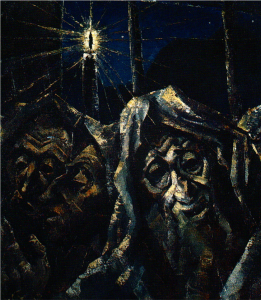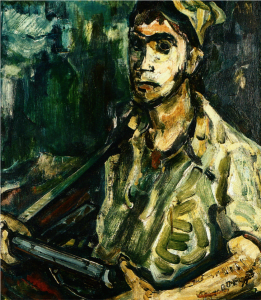What is culture? This question has been fiercely debated in the last two centuries by historians, philosophers, and artists. Geoffrey Hartman, in his fascinating book The Fateful Question of Culture, discusses various analyses and interpretations. He distinguishes between ‘civilization’, a more general description of humanity as a whole, and ‘culture’, the common values and history shared by a specific group: “Culture is said to keep alive, psychologically and socially, the possibility of a unified mode of being”. The culture of a community or a nation is a gradual accumulation of shared values over many years. An examination of national heritage is most likely to reveal a continuum from the past to the present; it implies a sequence from former generations to contemporary shared values.
In this sense, Israeli culture is different. The very essence of Zionism is a detachment from the past. Already in the late nineteenth century, most Zionist thinkers were extremely critical of Jewish life in Eastern Europe. They depicted the ‘Jew of the Diaspora’ as weak, unable to defend himself, passive and unproductive. Yet they admitted that Jewish intellectual life in the Diaspora was a source of pride.
The ‘New Jew‘ that was to be created in Israel, then Palestine, would be strong, brave, self-defending, and productive. ‘Productivity’ for Zionism at that time meant engaging in agriculture. Early Zionist descriptions of the ‘Jew of the Diaspora’ are sometimes hard to digest; at times they come close to anti-Semitic views. Jewish life appears wretched and distorted. This shaped the first generations of Israeli-born men and women, who were raised in this spirit – to the point that when new immigrants, some of whom were Holocaust survivors, came to Israel, they were perceived as complete strangers, having nothing in common with their fellow Jews born in Israel. Of course this attitude has changed completely; now Israelis are seeking a connection with the Diaspora, which no long has a negative value. But the actual detachment from the past is still apparent in Israeli society today. The formation of a national identity is very complex, and a certain ‘fluidity’ of values can be traced even today.
The most prominent illustration of the ‘New Jew’ is a novel by Moshe Shamir (1921-2004), entitled He Walked through the Fields (1947). It had a defining role in the formation of this ‘New Jew’ – many Israelis saw the protagonist, Uri, as a role model: the ultimate symbol of the brave Israeli-born man, born and raised on a kibbutz, who returns home after two years of agricultural school.
Uri is handsome, muscular, self-confident, and a military commander. The entire kibbutz is thrilled that he is coming home, but he soon faces two unexpected turns of events: first, his parents have separated and his father has joined the Jewish Brigade; and also, a group of new immigrants, some of them Holocaust survivors, have come to stay in the kibbutz. Among them is Mika, an attractive young woman. Uri and Mika fall in love at first sight.
The author goes out of his way to characterize Uri as the ‘New Jew’ and Mika as the Jew of the Diaspora. She is weak, never truly able to defend herself, and above all, passive. It wasn’t Zionism that made her come to Israel; she simply had no other choice. She doesn’t like the manual work, and unlike most of the kibbutz members, she spends hours in the library, reading and listening to classical music. In her, the spiritual bent of the Diaspora is evident. Uri, for his part, is profoundly attached to the land and to nature. His deepest commitment is to the struggle for the establishment of Israel. But he lacks ideological depth, saying practically nothing about political and social issues. And also, he is ineloquent, uttering half sentences mixed with colloquial words in Arabic. It would take the Israeli education system years to overcome this early spirit of anti-intellectualism.
Mika becomes pregnant; she is in a panic. At the same time Uri is called to the army. She simply cannot understand why he is going: “I don’t want you to go. I have seen people go to buy bread and never return”, she says to him. He later finds out that she is pregnant, and reacts with sadness and remorse for having neglected her. But a couple of days later he is killed. The tragic phone call to his mother comes exactly as his father returns home, and Mika is on her way to have an abortion. The father rushes to stop Mika, feeling that the only thing that will be left of his son is this baby.
The character of Uri had a substantial role in defining the identity of first generations of Israelis. And though Israel today is very different, perhaps more inclined to the character of Mika, Uri’s utter detachment from Jewish heritage of previous generations is still of consequence.
He was the precursor of the process of creating a new, Israeli, culture, which would, in the long run, develops in an abnormal way: first creating new shared values, and then slowly and gradually connecting to the heritage of the past.


Leave a Comment